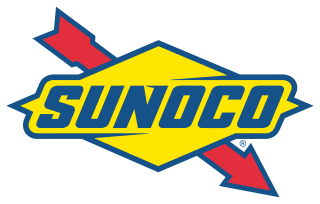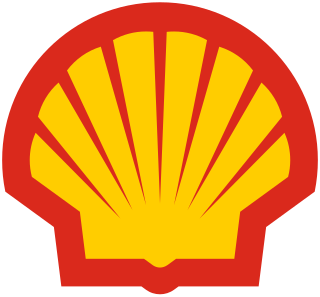A turnkey, a turnkey project, or a turnkey operation is a type of project that is constructed so that it can be sold to any buyer as a completed product. This is contrasted with build to order, where the constructor builds an item to the buyer's exact specifications, or when an incomplete product is sold with the assumption that the buyer would complete it.

The Strategic Petroleum Reserve (SPR) is an emergency stockpile of petroleum maintained by the United States Department of Energy (DOE). It is the largest publicly known emergency supply in the world; its underground tanks in Louisiana and Texas have capacity for 714 million barrels (113,500,000 m3). The United States started the petroleum reserve in 1975 to mitigate future supply disruptions as part of the international Agreement on an International Energy Program, after oil supplies were interrupted during the 1973–1974 oil embargo.

Sunoco LP is an American master limited partnership organized under Delaware state laws and headquartered in Dallas, Texas. Dating back to 1886, the company has transitioned from a vertically integrated energy company to a distributor of fuels. It was previously engaged in oil, natural gas exploration and production, refining, chemical manufacturing, and retail fuel sales, but divested these businesses.

The Seagram Company Ltd. was a Canadian multinational conglomerate formerly headquartered in Montreal, Quebec. Originally a distiller of Canadian whisky based in Waterloo, Ontario, it was in the 1990s the largest owner of alcoholic beverage lines in the world.

Horlicks is a British sweet malted milk hot drink powder developed by founders James and William Horlick. It was first sold as "Horlick's Infant and Invalids Food", soon adding "aged and travellers" to their label. In the early 20th century, it was sold as a powdered meal replacement drink mix.

Shell USA, Inc. is the United States–based wholly owned subsidiary of Shell plc, a UK-based transnational corporation "oil major" which is among the largest oil companies in the world. Approximately 18,000 Shell employees are based in the U.S. Its U.S. headquarters are in Houston, Texas. Shell USA, including its consolidated companies and its share in equity companies, is one of America's largest oil and natural gas producers, natural gas marketers, fuel marketers and petrochemical manufacturers.
A by-product or byproduct is a secondary product derived from a production process, manufacturing process or chemical reaction; it is not the primary product or service being produced.

Shell Canada Limited is the principal Canadian subsidiary of British energy major Shell plc and one of Canada's largest integrated oil companies. Exploration and production of oil, natural gas and sulphur is a major part of its business, as well as the marketing of gasoline and related products through the company's approximately 1,800 stations across Canada.

Emerson Electric Co. is an American multinational corporation headquartered in Ferguson, Missouri. The Fortune 500 company delivers a range of engineering services, manufactures industrial automation equipment, climate control systems, and precision measurement instruments, and provides software engineering solutions for industrial, commercial, and consumer markets.

Dalda is a vegetable oil brand popular in South Asia.

AMSOIL Inc. is an American corporation based in Superior, Wisconsin that primarily formulates and packages synthetic lubricants, fuel additives, and filters. Company founder Albert J. Amatuzio developed several synthetic motor oil formulations throughout the mid-to-late 1960s. He was commercially selling synthetic motor oil by 1968. In 1972, AMSOIL 10W-40 Synthetic Motor Oil became the world's first synthetic motor oil to meet American Petroleum Institute requirements, which prompted the company to adopt "The First in Synthetics®" as its tagline. The company introduced several other synthetic lubricants that represented industry firsts throughout the 1970s and early 1980s. It distributes products in North America via a network of independent dealers paid commissions on sales.
Ashland Inc. is an American chemical company headquartered in Wilmington, Delaware. The company was founded in the city of Ashland, Kentucky in 1924, where it was headquartered before moving to Wilmington in 1994. The company has five wholly owned divisions, which include Chemical Intermediates and Solvents, Composites, Industrial Specialties, Personal and Home Care, & Pharmaceuticals, Food and Beverage, and Agriculture. Until 2017, the company was the primary manufacturer of Valvoline.

Devon Energy Corporation is a company engaged in hydrocarbon exploration in the United States. It is organized in Delaware with operational headquarters in the 50-story Devon Energy Center in Oklahoma City, Oklahoma. Its primary operations are in the Barnett Shale STACK formation in Oklahoma, Delaware Basin, Eagle Ford Group, and the Rocky Mountains.

Progresso, a brand of General Mills, is an American food company that produces canned soups, canned beans, broths, chili, and other food products.
Sennelier is a French manufacturing company of art materials, mostly famous for its hand selected pigments. The company produces a wide range of paint products, including acrylic, oil, watercolor, gouache, oil and soft pastel, india ink, tempera, and other media.

Bertolli is a brand of Italian food products produced by multiple companies around the world with the trademark owned by Mizkan Holdings. Originating as a brand of extra-virgin olive oil, in which it was the global market leader, pasta sauces and ready meals are now sold under the brand name as well.
Princes Group is an international food and drink group involved in the manufacture, import and distribution of branded and customer own-brand products. Founded in 1880 and headquartered in the UK, and recently aquired by Newlat Food S.p.A.

Mitsui & Co., Ltd. is one of the largest sogo shosha in Japan; it is part of the Mitsui Group.
Robert J. Pera is the founder of Ubiquiti Networks, Inc. a global communications technology company that Pera took public in 2011. In October 2012, Pera also became the owner of the Memphis Grizzlies of the National Basketball Association. At the age of 36, Pera earned a spot on Forbes' list of the 10 youngest billionaires in the world.

Indian Oil Corporation Limited, trading as IndianOil, is an Indian multinational oil and gas company under the ownership of Government of India and administrative control of the Ministry of Petroleum and Natural Gas. It is a public sector undertaking which is registered in Mumbai but headquartered in New Delhi. It is the largest government-owned oil producer in the country both in terms of capacity and revenue. It has consolidated refining capacity of 80.55MMTPA.













